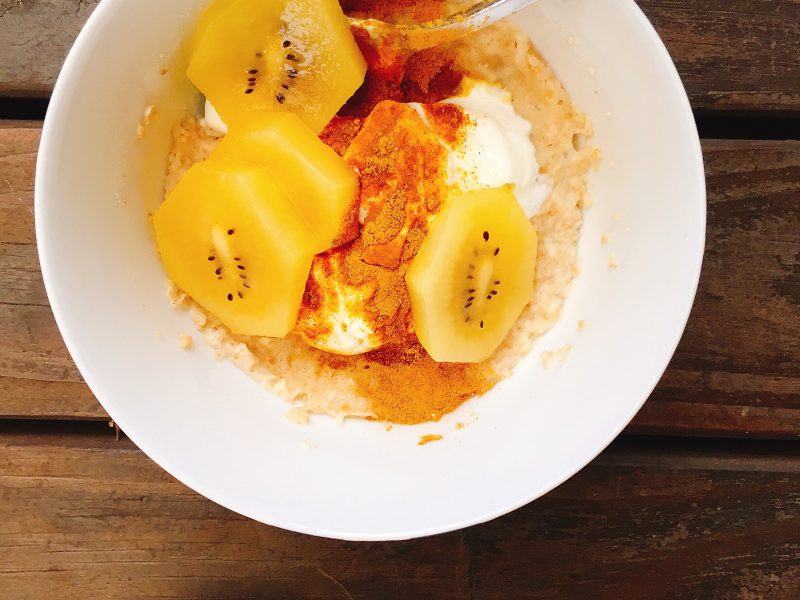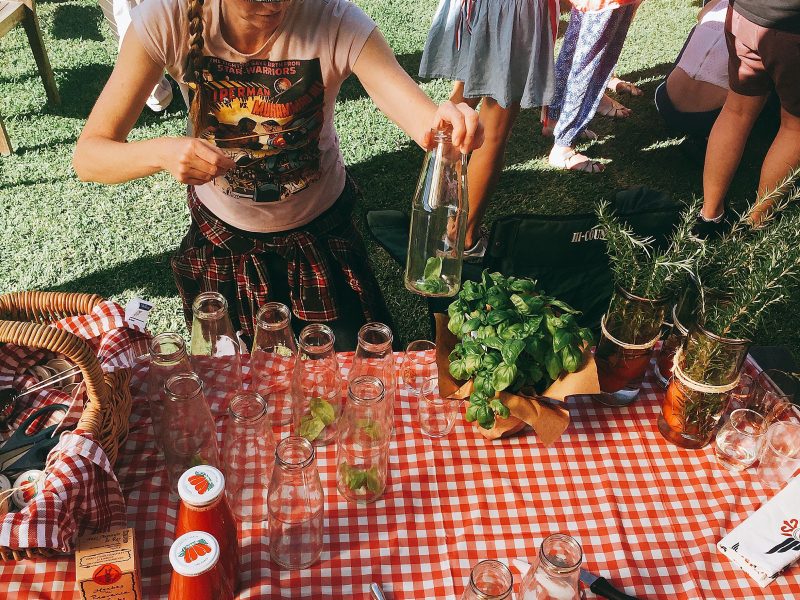Did you know our fab Sub of the Month for July is also a fab volunteer? In fact she has first hand experience in a Stephanie Alexander Kitchen Garden Program. So who better to give us the scoop on seven lessons we can learn from the program and how the evaluation is shaping up.
About our expert:
After completing her Masters in 2011, Jess has gained experience working in corporate health, as a clinical Dietitian and in her current role in private practice. She also loves volunteering on the side, collecting nutritious surplus foods at the markets for SecondBite and supporting cooking classes at a local primary school with the Stephanie Alexander Kitchen Garden Program. Read her full bio and connect on twitter.
I love being a Dietitian. And I also love a bit of volunteering – not only good for the soul, it can provide the perfect base for learning or developing new skills, and allows for a greater connection with the community. But I digress.
What I’d like to share with you is one of my favourite experiences – learning firsthand the value of having kids involved in the growing, preparation and cooking of food. Seeing kids gain a greater appreciation of and willingness to try new foods, learn invaluable skills and knowledge in the kitchen and garden all whilst having fun – what could be more important a step in addressing health problems like the growing obesity epidemic?

Cooking up the right approach
Cooking skills were once ingrained in family values, passed down from generation to generation. Sadly, it appears that the rise in time-poor working families coupled with the ever increasing availability of convenience foods has resulted in a generation of children and young adults alike who struggle with basic food and nutrition knowledge and are lacking in any discernible cooking skills.
There is a need to find a way to influence the food habits of our children, and the evidence is mounting that many of the current approaches (particularly fear campaigns) are not effective in motivating people to engage in healthier behaviours. According to research and described in this paper by dietitian Holly Mugglestone, instead of the use of negative and cautionary language, approaches that evoke more positive emotions (i.e. fun, excitement, love) have been found to be more effective.

It has also been recognised that schools are very important settings for health promotion, given that children spend a large proportion of their time at school and the setting itself provides the perfect opportunity to influence students’ behaviours through structured learning and activities. Thankfully, Stephanie Alexander saw this as an opportunity to propose a new way forward, and thus the Kitchen Garden Program was born.
Growing a food revolution from the ground up – key findings of the Stephanie Alexander Kitchen Garden National Program (SAKGNP) Evaluation
In June 2011 an evaluation study of the SAKGNP was undertaken on behalf of the Australian Government Department of Health and Ageing (DoHa) by the University of Woolongong, with the findings being published early this year. Overall the verdict was positive, showing:
- Strong evidence of increased child willingness to try new foods
- Increases in child knowledge, confidence and skills in cooking and gardening
- Greater engagement of children when cooking at home – reported that children liked cooking more and helped cook more often
- Effectiveness in engaging ‘non-academic learners’ and children with challenging behaviours
- Creation of links between schools and the broader community
- Promotes social inclusion

7 Lessons we can learn from the program
During my hands on time with the school I have these lessons to pass on for getting kids in the kitchen:
1. Don’t dumb it down
Kids love engaging, colourful and tasty meals, and generally enjoy a surprising amount of ‘adult’ flavours.
2. Monkey see monkey do
It is important to be a good role model as kids will mimic older peers and parents’ eating habits.
If they see you eating and enjoying (or pretending to!) a big plate of veggies, chances are they will follow suit!
3. Talking at the table
Make mealtimes fun and relaxed, and get chatting about the flavours, textures and tastes of the food and ingredients.
4. Plenty of positivity
Have rules, but use plenty of positive reinforcement. For example, one of the table rules at our school is that you must try 3 mouthfuls of each dish – no buts!
5. Get growing in the garden
Kids are keen to eat produce they’ve seen grow from a seedling!
6. Kids in the kitchen
Children are more likely to become discerning, adventurous eaters if they know how to cook. Start by setting simple tasks such as measuring and pouring ingredients or cracking eggs.
7. Main motivator
Simply, kids who are more actively involved in food choices are more likely to be interested in the food they eat. Involve them in the shopping and food preparation as well as the cooking.

The Stephanie Alexander Kitchen Garden Program in a nutshell
The SAKGP provides children in years 3-6 the opportunity to gain an understanding about growing, harvesting, preparing and sharing healthy food in an environmentally sustainable manner. The emphasis is on the use of healthy, fresh and flavoursome food, endorsing the concepts of balance and moderation i.e. preparing fruit based desserts ‘sometimes’, which in turn contribute to children developing life-long healthy eating habits.
Editor’s comment: Thanks so much Jess. It’s been wonderful to have you on board in July. Drop us any questions below lovely readers. And if you’re wondering how to become involved? It’s as simple as locating your nearest Kitchen Garden school and contacting them to express your interest in becoming a volunteer. You don’t need any special skills or qualifications, just a passion for cooking and/or gardening and a willingness to engage with children.


